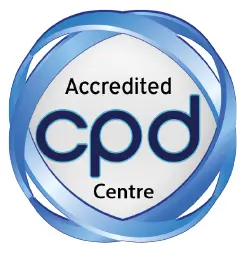Is This for You?
If managing projects is part of your work, this course will arm you with the budgeting skills required to do the job.
Award and Associated Qualifications


If managing projects is part of your work, this course will arm you with the budgeting skills required to do the job.

Good project management skills are always highly valued within a business as they ensure deadlines are met, costs are controlled, and the deliverables meet the organisation’s needs.
Project Management skills are key when within an IT department or related industry as you’ll learn how to manage complex processes using a variety of resources. What’s more, budgeting skills are highly transferable, enabling you to work within many different industries.
Over three modules, you’ll learn basic budgeting for non-financial professionals, creating a project schedule and budget, and planning and managing the project budget. You will cover:
"*" indicates required fields
This course covers basic budgeting for nonfinancial professionals and is ideal for those involved in project management who wish to learn budgeting in relation to project schedules
No pre-requisites are required for this course.
Wherever possible our training is tailored to your needs. The cost of our training programmes depend on the course(s) you choose and varies according to duration and breadth. Rest assured we have a number of payment options available to ensure the cost of training is affordable and can be worked alongside your other financial commitments. Common ways people fund their training include: –
Requesting funding from your employers needn’t be a daunting task. Many employers support and encourage their employees with their professional development and consider it a worthwhile investment to fund any training required.
What we can help with:
There may be the opportunity to apply for funded grants that can help towards the cost of training. These include the Skills Development Scotland ITAs and the ReAct programme in Wales. All schemes will have different terms and conditions that will need to be met in order to qualify for a grant and these are managed by each individual centre.
We’d recommend you speak to a Course Advisor in your local centre to find out whether they are registered to offer any such schemes and discuss your requirements further.
* Terms and Conditions apply. Speak to a Course Advisor for full information on the options available to you.
Project Management skills can come into play in a wide range of careers. Most employees with a certain level of responsibility will find themselves managing projects and initiatives throughout their careers. You will have many opportunities to put the skills learned in this course to use in your current and future work.